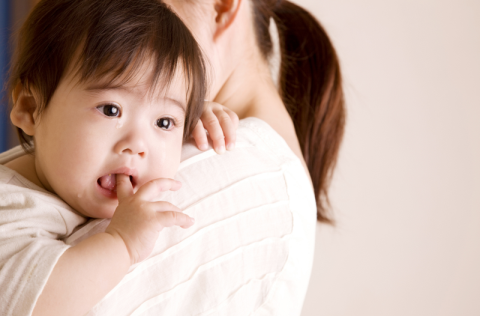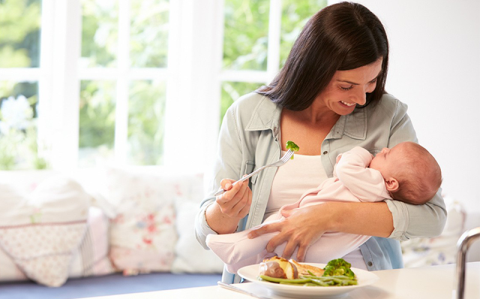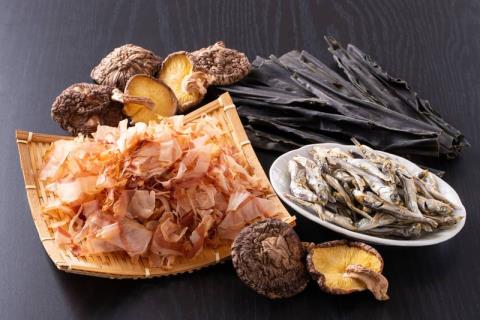Considering what to eat after giving birth with a lot of calcium is of great interest to many women. Because calcium-rich foods help to nourish the mother's health after giving birth, supporting strong bones. Besides, this is also an essential nutrient for the development of the child's skeletal system.
After childbirth, women need more calcium than usual. So what could be better than a daily calcium-rich diet. But what benefits does that bring and what to eat after giving birth with a lot of calcium? Join SignsSymptomsList to find the answer in the article below.
Why postpartum mothers need to supplement calcium for the body?
It can be said that calcium holds an essential part in our body. According to statistics, 99% of calcium ions are concentrated in the bones and 1% is found in the blood and soft tissues. Along with things related to the maintenance of biological functions of the body, calcium has many other positive values:
- It is the main structural component of the skeleton that supports the body. In contrast, calcium deficiency in infants will cause rickets , growth retardation or irregular teeth. As for pregnant women, the risk of osteoporosis during perimenopause is very high.
- For the immune system: The consequence of regular daily calcium intake is to control the immune response. More importantly, it helps women to recognize disease-causing agents early.
- For the nervous system: Calcium deficiency will make nerve conduction more or less inhibited.
- This substance is also involved in the management of stable muscle contraction. If you ignore its benefits, it is obvious that the elasticity of the muscles will be reduced. Followed by a feeling of weakness, physical weakness or a sudden increase in neuromuscular excitability.
- Why do many mothers care after giving birth to eat more calcium? Because calcium also plays a role in blood clotting, preventing the risk of bleeding and allergic diseases. The increased cell adhesion or airway protection is largely due to calcium.
 Supplementing calcium for mothers is a therapy to prevent the risk of osteoporosis
Supplementing calcium for mothers is a therapy to prevent the risk of osteoporosis
Typical symptoms of a mother's calcium deficiency after birth
A question many women ask: How do you know if you have a calcium deficiency? If the mother after giving birth does not supplement the necessary amount of calcium daily, it can be recognized through a few typical symptoms such as:
- Muscle aches or numbness in the limbs for a long time, most often at night.
- Fingernails and toenails become brittle.
- Colds, fevers or infections are common.
- Feeling toothache.
- Sleep disturbance at night, not sleeping well.
- Especially the problem of osteoporosis occurs in mothers with signs of calcium deficiency.
The risk of diagnosing calcium deficiency in children is also easily recognized through a few symptoms such as:
- The child's condition is weak, stunted or anorexic, which makes mothers worry.
- There are signs of fussiness and easy startling at night.
- Children sweat profusely.
- Hiccups and vomiting occur frequently.
- Hair falls out in the shape of a turban.
- Cognitive is somewhat slower than other children, difficult to get used to the surrounding environment.
Frequent crying is one of the signs of calcium deficiency
What to eat after giving birth with a lot of calcium? Good foods for mothers
The source of calcium from foods in life is extremely abundant. Using and processing food is the safest and most effective method of calcium fortification. Here are some food groups with high calcium content that you should add right into your daily menu.
Milk
According to statistics, in 250g of milk provides up to 275mg of calcium. Therefore, experts affirm that mothers should supplement milk every day to support calcium for the body. Some quality milk that mothers can choose such as cow's milk, goat's milk, soy milk, etc. Besides, some products made from milk such as yogurt support beneficial bacteria for the digestive system.
Green vegetables
This is not a strange food for each of us anymore. Some dark green vegetables contain extremely high levels of calcium and many other nutrients. These can be mentioned as broccoli, cauliflower, amaranth, bok choy, etc. Eating green vegetables brings effective skin care, weight loss as well as maintaining a good digestive system. In particular, prioritizing the processing of boiled vegetables and soups is a condition to increase the absorption rate of calcium.
Seafood
If the mother does not know what to eat after giving birth with a lot of calcium, seafood is the right choice because of its rich source of calcium. For example, shrimp, crab, salmon, mackerel, etc. will certainly not make you feel confused. However, the composition of seafood also contains a lot of protein, eating too much will cause indigestion. Not to mention, depending on the location, there will be people who are allergic to certain types of seafood.
Egg yolk
Referring to eggs, many of us forget that the amount of calcium in this food is extremely high. It is not only in the yolk but even the eggshell is rich in calcium. For every 100g of yolk, there are 134mg of calcium, which is a great choice for women to enhance this substance for their body.
Almonds and Oats
Almonds are a plant belonging to the nut group with extremely large reserves of calcium. Equivalent to 100g of almonds, the calcium content is up to 815mg. So, just about 150g of almonds is enough to provide calcium daily for mothers.
Besides, oats are the most calcium-rich food in the group of grains, 8 times more than white rice. Oats are used in processing many different foods such as cooking porridge or eating with yogurt, fruit to absorb more calcium.
Mothers are confused when choosing what to eat after giving birth with a lot of calcium
Some notes that mothers should not ignore when supplementing with calcium
At this point, the sisters had the answer to what to eat after giving birth with a lot of calcium. However, if calcium supplementation is not appropriate, it also causes adverse reactions that we cannot foresee:
- Calcium is not an easily digestible substance in the short term. And breakfast is the right time for women to nourish calcium for the body. Similarly, they should only be used regularly after meals for about 1 hour and divided into several times a day.
- In some cases, postpartum mothers are in the process of taking medicine, avoid combining calcium with iron or minerals at the same time. The reason is because they have the ability to inhibit each other and do not create nutrients. The solution here is that the mother should separate the time to drink morning, afternoon and evening.
- Calcium and milk or dairy products cannot go together because the risk of causing calcium deposition is great. This is quite dangerous because calcium cannot perform its nutritional function, affecting the digestive system.
- Do not use tobacco, alcoholic beverages or stimulants because these substances interfere with the absorption of calcium into the body.
Supplement calcium properly to avoid causing negative effects
The above is the most essential information for postpartum women to eat a lot of calcium . Hopefully, through these useful sharing, you have solved your own problems. Wishing you a lot of health and always accompany SignsSymptomsList in the next articles!

 Supplementing calcium for mothers is a therapy to prevent the risk of osteoporosis
Supplementing calcium for mothers is a therapy to prevent the risk of osteoporosis




